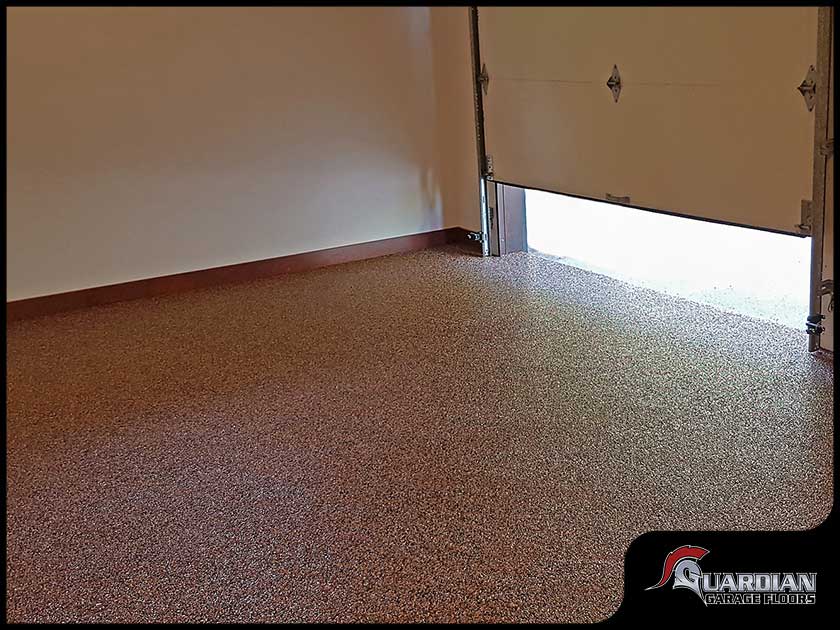Everything You Need To Know About Polyaspartic Coatings
 Polyaspartic coatings didn’t just appear overnight. Rather, they’re a product of years of development. In today’s post, Guardian Garage Floors shares a look at how polyaspartic coatings became the durable coating system that we know today.
Polyaspartic coatings didn’t just appear overnight. Rather, they’re a product of years of development. In today’s post, Guardian Garage Floors shares a look at how polyaspartic coatings became the durable coating system that we know today.
Who Invented Polyaspartic Coatings?
Polyaspartic coatings were developed in the early 1990s by Bayer MaterialScience, Bayer’s materials science division, known since 2015 as Covestro AG. Some of their products include polyurethanes for thermal insulation and high-impact polycarbonates, as well various types of coatings and adhesives. Polyaspartic coatings are the result of the reaction of two main ingredients: an aliphatic polyisocyanate and a polyaspartic ester, which acts as the hardener and the reactive diluent, respectively.
Installation Process
Polyaspartic coatings are applied to a concrete substrate. The first step in a typical installation is to prepare the substrate using a combination of diamond-tipped grinders and high-power industrial vacuum cleaners. Moisture issues are fixed before proceeding to the next step. This helps ensure that the floor is perfectly level and won’t develop problems down the road. Cracks are addressed by filling the gaps with a quick-cure compound, then grinding them smooth.
A base coat of polyaspartic coating is applied to the concrete substrate. Rollers and brushes are used to minimize the dispersal of the coating into the air. A second base coat is applied, then chips or flakes made of vinyl are manually spread onto the still-curing second coat. After curing, loose flakes are scraped and vacuumed before the clear top coatings is applied.
Advantages Of Polyaspartic Coatings Over Epoxy
While polyaspartic coatings have many similarities with epoxy, it offers certain advantages epoxy doesn’t. Flooring with polyaspartic coatings has more “flex” than epoxy, making it more resistant to scratches, which is ideal for areas that see constant foot traffic. It also provides a moisture- and grease-proof surface that makes it the best flooring for garages, where oil drips or spills often occur. Lastly, polyaspartic coatings work well at temperatures as low as -22 degrees. In addition to cold weather applications, polyaspartic coating is used in facilities that utilize freezing chambers.
Guardian Garage Floors is your leading provider of residential and commercial polyaspartic coating services. Give us a call at (984) 217-2842. You can also fill out our contact form to schedule an appointment.

